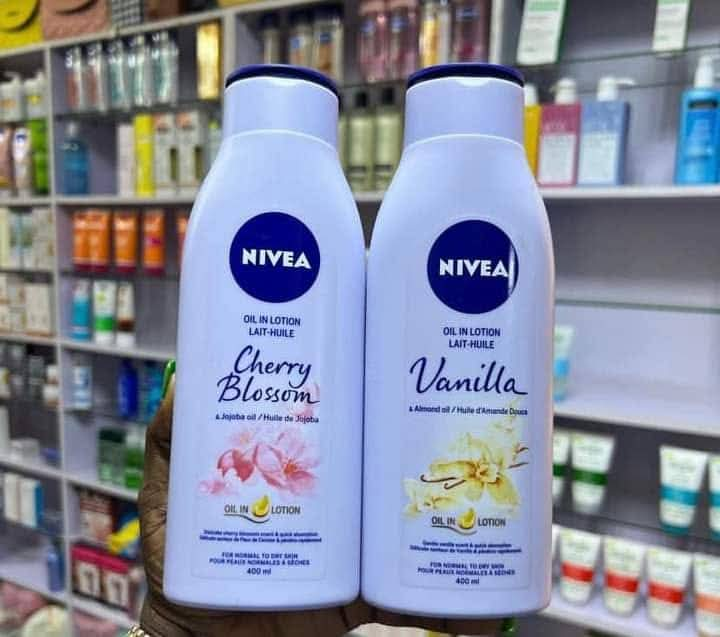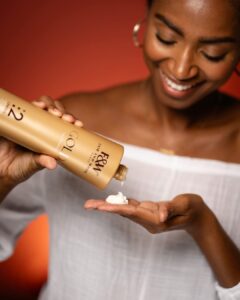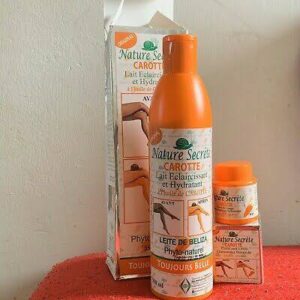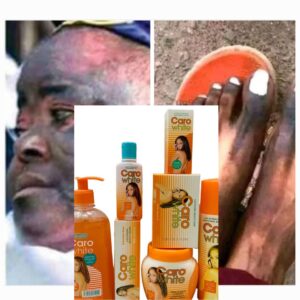Table of Contents
- Introduction
- What is a Bleaching Cream?
- Understanding Nivea’s Product Range
- Whitening, Brightening, and Bleaching: Key Differences
- Ingredients in Nivea Products
- Why Do People Think Nivea is a Bleaching Cream?
- Dermatologists’ Perspectives
- Real-Life Experiences and Testimonials
- How to Choose the Right Skincare Product
- The Science of Skin Care: Myths and Realities
- Conclusion
Introduction
Skincare is more than a routine; it’s a journey. For many, this journey involves navigating countless products, each promising to solve specific problems. Among these products, Nivea stands out as a household name, trusted for decades. However, a lingering question remains: Is Nivea a bleaching cream?
I still recall a casual conversation with a friend who claimed Nivea could lighten skin. At first, I dismissed it, but her conviction made me curious. Could this beloved brand, known for its iconic blue tin, really fit into the category of bleaching creams? That question led me on a quest for answers, one I’m excited to share with you.
This article dives into the heart of the matter, dissecting myths, exploring science, and sharing personal experiences. By the end, you’ll have a comprehensive understanding of Nivea’s purpose and whether it aligns with your skincare goals.
What is a Bleaching Cream?
Before diving into Nivea’s products, let’s define what a bleaching cream is. Bleaching creams are designed to lighten skin by reducing melanin, the pigment responsible for skin color. These products are often marketed to:
- Fade dark spots, age spots, or scars.
- Treat hyperpigmentation and melasma.
- Achieve a lighter complexion overall.
Unfortunately, the promise of lighter skin comes with risks. Common ingredients like hydroquinone, kojic acid, and even mercury can have harmful effects if used improperly. For instance, prolonged use of hydroquinone may cause ochronosis, a skin disorder that darkens and thickens skin instead of lightening it.
This is why it’s crucial to understand the distinction between bleaching and other skin-enhancing practices like brightening or hydrating—a distinction we’ll explore next.
Understanding Nivea’s Product Range
Nivea’s extensive product range caters to various skin needs. Whether you’re combating dryness, seeking sun protection, or wanting soft lips, Nivea has a solution. Here’s a glimpse at their core categories:
- Body Lotions and Creams: Iconic for their rich hydration. Products like the Nivea Soft Cream are a staple in many homes, including mine. I still remember using it during a harsh winter; the way it soothed my dry skin felt magical.
- Face Care: Gentle cleansers, SPF moisturizers, and anti-aging solutions.
- Lip Care: Lip balms infused with nourishing ingredients.
- Deodorants: Offering long-lasting freshness and protection.
Despite their hydrating focus, some Nivea products use terms like “whitening” or “brightening,” which often confuse consumers. But what do these terms really mean?
Whitening, Brightening, and Bleaching: Key Differences
When I first saw a “whitening” cream at a local store, I hesitated. Did it promise to change my skin tone? Or was it something less invasive? Here’s how these terms differ:
- Whitening: In marketing, this term often refers to reducing uneven skin tone or enhancing natural brightness. It’s about correcting dullness, not altering your skin’s base color.
- Brightening: Focused on achieving a radiant, healthy-looking complexion by addressing factors like dullness or mild discoloration.
- Bleaching: The most aggressive approach, involving the suppression of melanin to significantly lighten skin tone.
Nivea’s “whitening” or “brightening” products often contain ingredients like Vitamin C and licorice extract—compounds known for their ability to even out skin tone without bleaching.
Ingredients in Nivea Products
To truly understand Nivea’s role in skincare, let’s dissect the ingredients they use:
- Vitamin C:
- Fights free radicals and fades dark spots.
- Encourages a brighter, even-toned complexion.
- I’ve personally noticed how Vitamin C serums help lighten acne scars over time—a subtle yet satisfying result.
- Niacinamide (Vitamin B3):
- Improves elasticity and smoothness.
- Reduces redness and dark spots.
- Glycerin:
- Locks in moisture, leaving skin hydrated.
- Strengthens the skin barrier.
- SPF:
- Shields against harmful UV rays.
- Prevents sun-induced dark spots and uneven tone.
These ingredients work together to promote healthier, radiant skin, steering far away from the harsh effects of bleaching.
Why Do People Think Nivea is a Bleaching Cream?
The misconception likely stems from several factors:
- Marketing: In regions where lighter skin is a beauty ideal, terms like “fairness” can mislead consumers.
- Cultural Perceptions: Many societies equate lighter skin with beauty and success, fueling misunderstandings.
- Product Misuse: Combining Nivea products with other skin-lightening agents may produce unintended results, further perpetuating myths.
Dermatologists’ Perspectives
Dermatologists frequently recommend Nivea products for hydration and protection. Dr. Emily Carter, a skincare specialist, explains: “Nivea’s formulations prioritize skin health. Ingredients like glycerin and Vitamin C are geared toward enhancing skin’s natural glow, not altering its pigment.”
Real-Life Experiences and Testimonials
Hearing real stories adds a personal touch to this discussion:
- Maria’s Experience: “I’ve used Nivea’s body lotion for years. It keeps my skin hydrated without any irritation. The idea that it’s a bleaching cream is absurd.”
- James’s Perspective: “The Nivea sunscreen has been my summer essential. It protects my skin while preventing dark spots. That’s all I’ve ever needed.”
Check this Facebook post to see more review
How to Choose the Right Skincare Product
Navigating the skincare aisle can feel overwhelming. Here are tips to simplify the process:
- Know Your Skin Type:
- Dry, oily, combination, or sensitive?
- Match products to your specific needs.
- Check Ingredients:
- Look for active ingredients suited to your goals (e.g., hydration, anti-aging).
- Patch Test:
- Always test new products on a small area to avoid reactions.
- Seek Professional Advice:
- Dermatologists can offer personalized recommendations.
The Science of Skin Care: Myths and Realities
Skincare is full of myths, and understanding the science helps debunk them:
- Myth: Hydrating creams lighten skin.
- Reality: Products like Nivea hydrate and nourish; they don’t change your skin’s natural tone.
- Myth: All “whitening” products are bleaching creams.
- Reality: Terms like “whitening” often mean brightening dull skin, not altering melanin levels.
Conclusion
So, is Nivea a bleaching cream? No, it’s not. Nivea’s mission is to provide hydration, nourishment, and protection. Misunderstandings arise from cultural biases and marketing language, but the science behind the brand tells a different story.
Skincare isn’t about chasing unrealistic ideals. It’s about embracing and enhancing your natural beauty. With Nivea, you’re investing in healthier, happier skin—and that’s a journey worth taking.
What’s your experience with Nivea? Share your story in the comments below!




